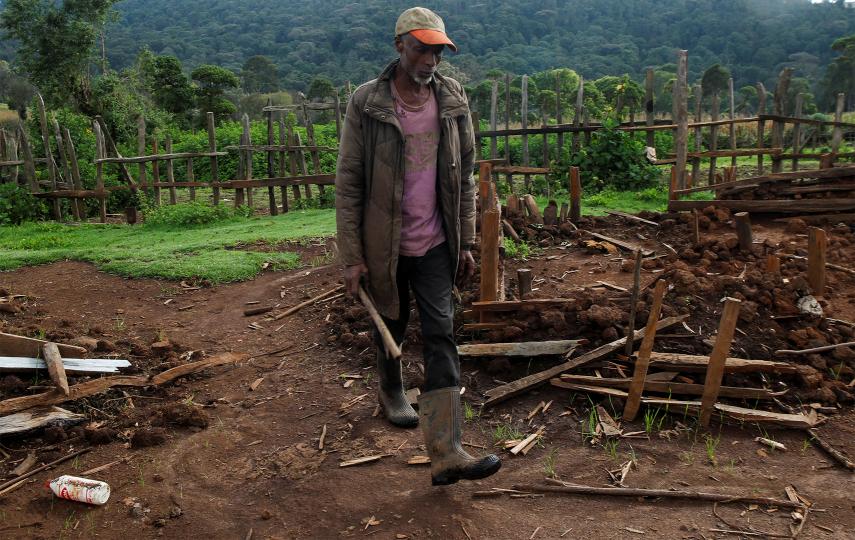HIV/AIDS policymakers are not acknowledging the key roles of senior citizens and orphans in their strategies to combat the pandemic, says an NGO report released this week.
"Few national HIV/AIDS policies pay adequate attention to the growing numbers of orphans and vulnerable children affected by HIV/AIDS, and even less make provision for their older carers and guardians," says the report entitled "Forgotten families, Older People as Carers of Orphans and Vulnerable Children" written by HelpAge International and International HIV/AIDS Alliance.
Currently about 16 million children under the age of 15 worldwide have lost one or both parents to AIDS. The figure is expected to rise to a staggering 40 million in 10 years time. Many of the children are taken in by grandparents, who stuggle with meagre resources to support them. The World Bank estimates that in South Africa and Uganda 40 percent of orphaned children live with their grandparents, and in Zimbabwe over half.
Although large extended families living together is nothing new in most of Africa, several distinctive characteristics govern the families affected by HIV/AIDS, says the report: usually the middle generation is entirely absent; there are large numbers of orphans; an increasing number of these households are headed by older women; and they belong to the poorest sections of society.
A study in Kenya showed that while average household expenditure was about 6,800 ksh (US $91) per month, the average income of households was about 2,400 ksh (US $32). To cope with the costs, older people are forced to sell off their land, property, cattle and other assets, while family expenses - including treatment for sick family members and funerals - go up.
Compounding the poverty trap, many female seniors lack inheritance rites to family land and property, and orphaned children often have no knowledge of, or are prevented access to, their entitlement to their deceased parents' wealth.
Health care is also inaccessible in many cases, as it is concentrated in urban centres. So is education for children who are caring for sick family members and working to support their families.
On top of this, accurate information regarding HIV/AIDS, which might help to prevent the cycle of sickness and poverty, is often unavailable or inaccessible due to low literacy levels. "Prevention and awareness programmes are almost exclusively targeted at young people, and rarely reach out to older age groups, either as carers or possible 'at risk' groups," says the report. So while older people often act as educators and moral guides in their societies and at home, they remain ignorant about the facts.
The report has a number of recommendations including income support for families to help them to cope; accessible health care for all; flexible schooling for children to allow them to attend school; and awareness programmes targeting older people.
For more information, view the following:
www.helpage.org and
www.aidsalliance.org




